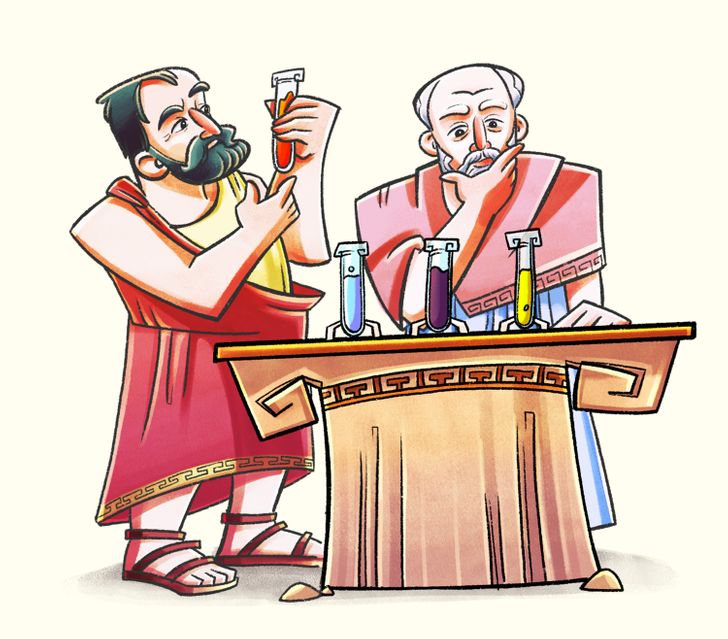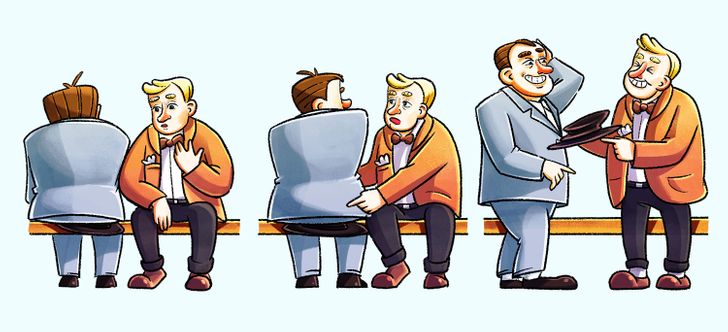Different Types of Temperament: Explained
Our temperament can affect our lives more than we think. It determines our sensitivity, energy, efficiency, and other qualities to a great extent. Thanks to it, we react differently to events and behave differently in certain situations.
You will be able to learn more about temperament and its types with 5-Minute Crafts.
What is temperament?
Temperament is a combination of innate mental qualities, which is determined by many factors, including the chemistry of the human brain and the work of its central nervous system. Not only is temperament an innate trait, but it also can’t cardinally be changed throughout life. Temperament determines the impressionability of a person and their emotional stability, energy, mobility, and other dynamic characteristics.
Your reaction to various life situations will depend on the qualities determined by your temperament. It means that you will be able to train some features in yourself and “suppress” others, but in stressful situations, it’s likely that the innate traits dictated by your temperament will come out.
Types of temperament

The origins of the typology of temperament go back to the ancient Greek physician Hippocrates and the ancient Roman physician Galen, who believed that temperament depends on the fluid prevailing in the human body. Thus, it was found that people with a sanguine nature were communicative and dynamic due to the fact that blood prevails in their bodies. Phlegmatics are quite reserved due to the phlegm that their body consists of. Cholerics are impulsive and determined because it’s yellow bile that prevails in their bodies. Melancholics are prone to depression due to black bile.
While the theory about prevailing liquids was not confirmed and is no longer used for defining temperament, the names given to the types of temperament many centuries ago are still used today.
Modern psychologists believe that several types of temperament are often combined in the personality of each person. One or 2 of them are usually more pronounced.
The main types of temperaments differ by the speed and strength of emotional responses. Cholerics usually give a quick and bright emotional reaction to the things happening around them. Sanguines react fast but they behave calmer. Phlegmatics have a late and weak reaction to the things around them. Melancholics are impressionable but they don’t show their feelings all at once.
Sanguine

- Sanguines are optimistic, communicative, and active. They get along with people easily and trust new acquaintances. People with this type of temperament usually have a good sense of humor and inclinations toward leadership.
- Sanguines are very active, energetic, and resourceful. They easily take on new things and can maintain their working capacity for a long time. They also easily switch to new tasks and are able to concentrate quickly.
- People with a sanguine temperament easily show flexibility and adapt to new conditions. At the same time, they also easily get carried away and lose attention if they are bored with something.
- Due to their curiosity, sanguine people may experience problems with self-organization. It can be difficult for them to focus on one thing and finish what they’ve started.
- Sanguine people rarely hide their emotions. Oftentimes, you can guess their current mood or emotions by simply looking at their face. People who have this temperament don’t find it difficult to talk about their feelings, no matter whether they are good or not.
Choleric

- People with a choleric type of temperament are smart, active, and practical. They value freedom and independence, easily set goals for themselves, and move forward. In an effort to achieve a result, choleric people make decisions quickly — not only for themselves but also for others.
- In communication, choleric people often radiate self-confidence, they are not afraid to meet new people, but they only allow a few of them to get closer. They don’t like empty conversations and can seem overly assertive, cold, and rude. If a choleric is not satisfied with something, they won’t beat around the bush but will say everything honestly.
- People with a choleric temperament are often very creative. They always have many ideas and plans for their implementation. At the same time, choleric people tend to analyze everything, they have a developed logic, which allows them to calculate the outcome options several moves ahead.
- Unlike people with a sanguine temperament, choleric people are less flexible and adaptive. They find it more difficult to switch from one activity to another. However, in contrast to this, choleric people are more persistent in achieving goals and are more stable in their interests and aspirations.
Phlegmatic

- People with a phlegmatic type of temperament usually have a calm lifestyle that is focused on their family. They don’t strive for active communication with others yet they don’t find it difficult to make friends and appreciate them.
- Phlegmatic people don’t strive to take responsibility and lead a process. They work well in a team, happily letting others make decisions for them. However, phlegmatic people don’t like change and find it difficult to adapt to new things, especially if something has changed suddenly.
- It is very easy to get along with people who have a phlegmatic temperament. They are calm and patient, make concessions easily, and avoid conflict.
- Phlegmatic people have an excellent ability to collect and classify facts into various categories. These people are highly imaginative and like to think abstractly. They are able to trace subtle interconnections and combine things that seem to be impossible to connect. The information assimilated in this way is remembered by them much better than individual facts.
- Despite their outer cold-bloodedness, phlegmatic people are often very attentive and empathetic.
Melancholic

- Melancholic people are usually very anxious. They often worry about the future, remember past mistakes, and take criticism hard. They are very concerned about what other people think of them. To reduce their stress levels and feel more confident, they often need to have a clear plan of action and follow it to the letter.
- As a rule, these people are well-organized even under immense pressure. They are punctual and conscientious, they always monitor the quality of their work, they try to do everything perfectly, and they expect the same from others.
- People with a melancholic temperament are attentive to details and are slow to make decisions. It is important for them to assess the situation at first and make sure their actions are correct. Only after having done this, are they ready to act.
- Melancholic people are careful and very selective in their relationships. They are not used to opening up to just anyone, that’s why their circle of friends and contacts is usually quite small. In unfamiliar surroundings, melancholic people become reserved and feel insecure. In a difficult situation, they can also behave aggressively, defending themselves from their “attacker.”
- Usually, those with a melancholic temperament are not persistent and easily back down in difficult situations, yielding to another person or circumstances. At the same time, they are very sensitive and find it hard to overcome failures. Sometimes even an insignificant reason can cause strong emotions in them.